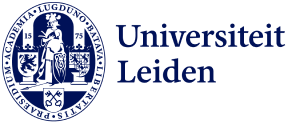Over deze minor
This multidisciplinary minor addresses the fascinating question how we, modern humans, got to be the way we are. Who were our ancestors? How does our morphology, genetic makeup, brain and behaviour relate to that of other species? How does our evolutionary past affect our susceptibility to diseases? And how did language and culture arise?
The minor starts with the biological principles of evolution, life histories, and phylogenetics. Attention will be paid to the comparative anatomy and physiology of the human digestive tract, immune system and brain. The program then continues with paleontological methods, and the reconstruction of the age, distribution and anatomy of human species. Archeological evidence on diet, use of fire, disease, and group composition will be studied. Hereafter, the minor focuses on the consequences of our evolutionary history for our health, and will provide evolutionary explanations for ageing, metabolic disease, cancer, autoimmune disease and mental disorders. The program ends with an exploration of the diversity in behaviour of modern humans, and the evolution of a range of human traits such as foraging strategies, mate preferences, culture, language, and music.
A prominent second learning objective is scientific writing and critical evaluation of scientific literature. Therefore, students will work in small interdisciplinary groups on an integrative essay in the first half of the minor, and will review of topic on own choice at the end of the minor. During the minor, students will become familiar with a variety of approaches and theories in the field by a combination of lectures, primary literature, many practicals and some museum visits. There are ample opportunities for debate, oral presentations, poster presentations and discussions.
This course is particularly directed towards students in Natural Sciences, Medicine and Archaeology, but is open to all students with an interest in human evolution. The focus on genetic, biological and medical topics may be challenging to students without a background in natural sciences. The aim is an equal mix of students of Biology, Archeology, and Medicine. Students from other disciplines may be interviewed to evaluate if this minor is the right choice.
For example questions of some of the subjects treated in the minor please see this test: https://www.formdesk.com/universiteitleiden/form7626
Goed om te weten
- It is possible for students of the Medicine program to follow the first 3 courses of the minor as a half-minor for 15EC. Contact for more info
Aanvullende informatie
- StudiepuntenECTS 30
- Niveaubachelor
- Selectie minorNee
